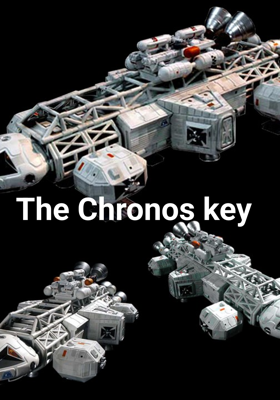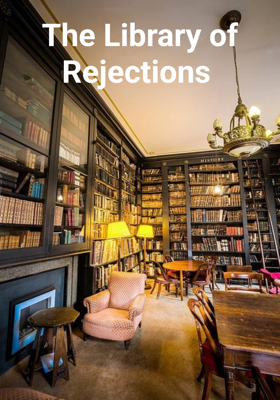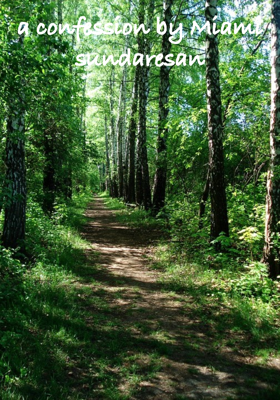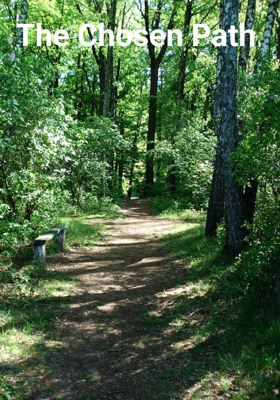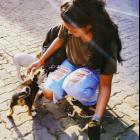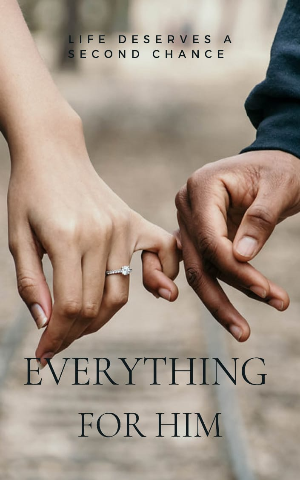The Survival Link...
The Survival Link...


The Survival Link...
Victoria was new to this town, having recently moved for a high-paying job at a corporate software company. Everything seemed perfect on the surface—financial security, a prestigious role, and a fresh start. But deep down, she struggled with a persistent feeling of loneliness. Social situations made her feel awkward and out of place. Even with her success, she felt disconnected, as if there was a wall between her and the rest of the world.
Her mother had always urged her to attend church. “It’s not just about religion,” she’d say. “It’s about community. You need that connection.” But Victoria had been reluctant. Faith had never been a major part of her life, and she couldn’t see how sitting in a church pew surrounded by strangers would help her overcome her isolation.
But today was different. Tired of feeling like an outsider in her own life, she decided to take her mother’s advice. Maybe attending St. Andrew’s Church would offer her something she hadn’t anticipated—something more than just a routine Sunday service.
The church, with its towering stone walls and vibrant stained-glass windows, had an air of timelessness. As she entered, the scent of wood and candle wax filled the air, calming her nerves. She slipped into a pew near the back, quietly observing the congregation as they exchanged greetings and laughter. They all seemed so familiar with one another, so comfortable. Victoria hoped she wouldn’t stand out.
The service began, and Father Joseph, the priest, spoke with warmth and conviction. “Today we celebrate the Eucharist,” he said. “It is more than just bread and wine. It is a meal that unites us, just as meals have brought people together since the dawn of time.”
Victoria’s curiosity was piqued. She hadn’t thought of communion that way before—as something connecting not only the spiritual but also the deeply human need for belonging. Could this ritual really hold the key to breaking down the invisible barriers she felt?
After the service, she lingered in the parish hall, where the congregation gathered for coffee and conversation. She stood by herself, not quite ready to dive into the social scene. A voice interrupted her thoughts.
“You’re new here, aren’t you?” A kind-looking woman approached, her curly hair shot through with streaks of gray.
“Yes,” Victoria said, smiling faintly. “I’m Victoria.”
“Margaret,” the woman introduced herself, extending a hand. “Welcome to St. Andrew’s. I hope you found the service meaningful.”
“I did,” Victoria admitted, surprising herself. “I’ve never really thought about communion as something more than a religious ritual.”
Margaret’s eyes twinkled. “It’s much more. It goes back to our ancestors, long before any of this existed. It’s how we’ve survived—as a species and as individuals. Sharing food, sharing stories, it’s what keeps us connected.” She gestured toward a young boy sitting at a nearby table. “That’s my son, David. He’s quite the little historian—fascinated by our ancient past. He could tell you all about how our ancestors survived.”
Victoria followed her gaze, noticing the boy hunched over a drawing, meticulously shading in the details. He couldn’t have been more than eight or nine years old, but there was a focus in his expression that belied his age.
“He’s really into paleoanthropology,” Margaret added with a chuckle. “He’s been reading about human evolution since he was five.”
Victoria, intrigued, walked over to David. “Hi, David,” she said softly, peering at his drawing. “What are you working on?”
David looked up, his eyes bright with enthusiasm. “It’s a picture of a group of humans from ten thousand years ago,” he explained eagerly. “See? They’re gathered around a fire, sharing food. That’s Arion—he’s new to the group, just like you’re new to this town.”
Victoria smiled, taken aback by the boy’s insight. “Why are they sharing food?”
David put down his pencil and leaned closer, ready to share his knowledge. “Because that’s how they survived! Back then, living in groups was the only way people could protect themselves from danger. They hunted together, ate together, and helped each other. If you were alone, you were vulnerable. But if you stayed with the group, you were safe.”
Victoria was captivated. “So, they relied on each other not just for food, but for protection too?”
“Exactly!” David’s face lit up. “When they hunted, it wasn’t just about one person getting food for themselves. They worked as a team. Some would chase the animals toward others who were waiting to catch them. They had to share the food because no one could survive alone. And the more they shared, the stronger their group became.”
Margaret joined them, smiling fondly at her son’s enthusiasm. “That’s why communion is so important. It’s not just about remembering Christ’s sacrifice, though that’s a big part of it. It’s also about remembering that we, as humans, have always needed each other. Sharing a meal is how we express that.”
David jumped in again, unable to contain his excitement. “And it wasn’t just about food. They told stories around the fire too. Stories about their hunts, or where they found food, or how they escaped danger. That’s how they learned to survive. They passed down all the knowledge they had to the next generation.”
Victoria nodded slowly, absorbing it all. “It sounds like what we do now, in a way—sharing meals, telling stories.”
David grinned. “Exactly! Communion is like that too. It’s a meal that brings us together and reminds us that we’re stronger when we’re connected.”
Margaret added, “In today’s world, where we’re all so busy and disconnected, it’s easy to forget how much we need each other. Communion is a reminder of that. It’s a link to something ancient, something that’s been a part of us since the beginning.”
Victoria was overwhelmed by the depth of David’s knowledge and Margaret’s wisdom. She felt as though something had shifted inside her, something profound. The idea that communion wasn’t just a religious act but a survival mechanism—an ancient practice of bonding and ensuring the group’s well-being—awakened a sense of belonging she hadn’t felt in years.
She looked down at David’s drawing once more. “You know, I’ve never really thought about things that way before. It’s fascinating how our ancestors had to rely on each other for survival. And maybe we still do, even if it looks different now.”
David nodded vigorously. “Yeah! Even though we don’t live in caves or hunt animals anymore, we still need each other to survive. And communion is one of the ways we remember that.”
Victoria smiled, feeling a warmth spread through her that had nothing to do with the church’s inviting atmosphere. It was a feeling of connection—a feeling that perhaps she wasn’t as alone as she had thought. Maybe, just like Arion in David’s drawing, she had found her group.
As the afternoon sunlight filtered through the stained-glass windows, casting colorful patterns on the floor, Victoria realized something important: she had been looking for a way to belong, and here, in this moment, surrounded by people who shared stories and meals, she had found it.





















